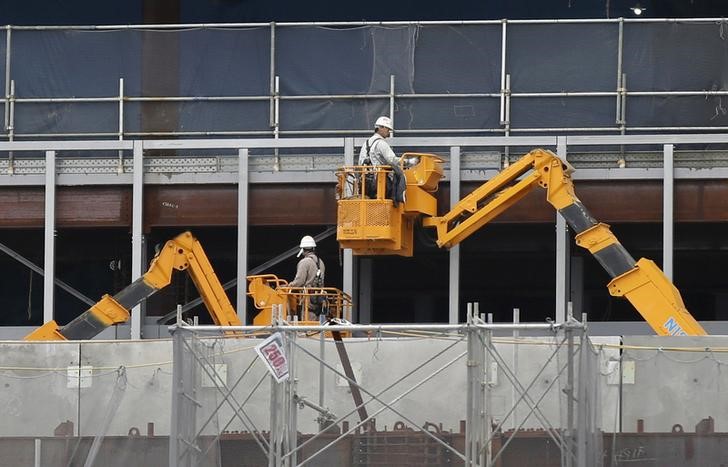By Kaori Kaneko
TOKYO (Reuters) - Japan's leading indicator of capital spending is expected to rebound in August, a Reuters poll found, offering some solace to policymakers facing fears that the economy may have slipped into recession.
Core machinery orders, a highly volatile data series regarded as an indicator of capital spending in the coming six to nine months, was expected to rise 3.2 percent in August, the Reuters poll of 21 economists found.
The expected gain would follow a 3.6 percent fall in July and a 7.9 percent drop in June.
From a year ago, core orders were expected to increase 4.2 percent following a 2.8 percent gain in July, according to the poll.
"Firms' capital spending is in a recovery phase in the medium term, helped by good business results," said Takumi Tsunoda, senior economist at Shinkin Central Bank Research Institute in the survey.
"But there is a possibility that companies are becoming cautious about investment as uncertainty over the prospects for the global economy is rising."
Yuichiro Nagai, economist at Barclays (LONDON:BARC) Capital Japan, said the basic trend for a gradual recovery in machinery orders remains intact but there may be some adjustment of its speed.
"The Bank of Japan's tankan survey showed firms' capital spending plans maintain a solid undertone despite the weak economy. But we would like to see how this will pan out," he said.
The latest BOJ tankan survey showed big firms revising up their capital spending plans for this fiscal year, but the business confidence of big manufacturers worsened in the three months to September.
The Cabinet Office will publish the machinery order data at 8:50 a.m. on Oct. 8 (2350 GMT on Oct. 7).
Separately, the current account balance for August, which will be issued at the same time as the machinery orders, is expected to show a surplus of 1.22 trillion yen (6.7 billion pounds)as a weak yen helped swell income from overseas investments, the poll found.
This would be the 14th straight monthly surplus after a 1.8 trillion yen surplus in July.
The economy shrank in April-June quarter and analysts expect any rebound to be small, or they see the economy contracting again in the current quarter, with some economists predicting the government taking additional stimulus steps later this year.
